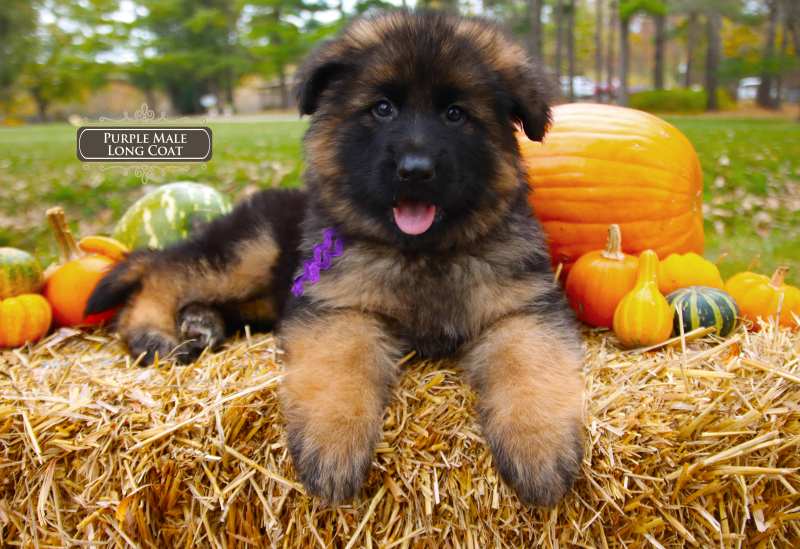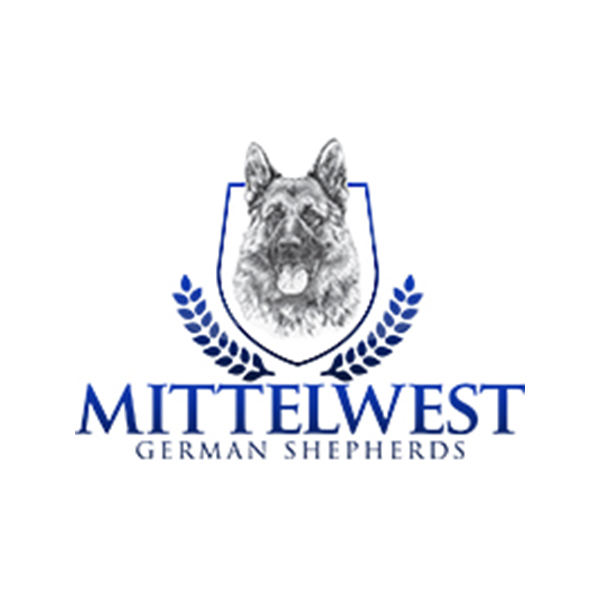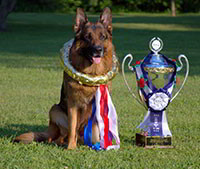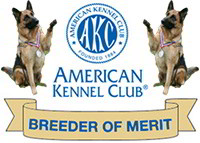Overview:
German Shepherd puppies begin losing baby teeth around 16 weeks and finish by 6 months, sometimes stretching to 7. Teething shows up through chewing, drooling, or irritability, and owners can help with chew toys, frozen treats, and consistent training. After teething, lifelong dental care, like brushing, vet visits, and monitoring, keeps adult teeth healthy.

German Shepherd puppies grow quickly, and one of the biggest changes happens inside their mouths. You may wonder, When do German Shepherd puppies lose their baby teeth? This stage can start sooner than most owners anticipate, around three to four months of age, and is the reason behind the sudden chewing, drooling, and restless behavior.
Baby teeth give way to stronger adult teeth over several weeks, and the process can be messy if you don’t know what to expect. Knowing when it happens and how long it lasts makes it easier to handle the discomfort, redirect destructive chewing, and keep both your puppy and your furniture safe during the transition.
The Stages Of Puppy Teeth In German Shepherds
German Shepherd puppies don’t start out with a mouth full of sharp little teeth. They’re born toothless, but by the time they’re about three weeks old, small baby teeth begin to push through. These are called deciduous teeth, and by the end of this early stage, most puppies will have 28 of them.
The next big change comes when those baby teeth fall out and are replaced by 42 permanent adult teeth. This transition, often called teething, is what makes puppies chew on anything they can find, from toys to table legs. Knowing how the process unfolds gives owners a better sense of why their puppy’s behavior suddenly changes and how to guide them through it.
When Do German Shepherd Puppies Lose Their Baby Teeth?
Most German Shepherd puppies start losing their baby teeth between 16 and 24 weeks of age. The process doesn’t happen overnight. It’s gradual, with front teeth (incisors) usually falling out first, followed by canines and premolars. By six or seven months, most German Shepherds have their full set of adult teeth.
Some puppies are a little ahead or behind this range, and that’s usually fine. Just like children, each dog follows its own pace. As long as teeth are coming out and being replaced by healthy permanent ones, the timeline is on track.
What Are Signs Your GSD Puppy Is Losing Teeth?
Teething doesn’t just happen inside your puppy’s mouth. It shows up in their behavior and routines, often before you ever find a tiny tooth on the floor. Knowing what’s normal helps you tell the difference between simple teething and something that might need a vet’s attention.
- Chewing more than usual: Puppies look for relief by gnawing on toys, shoes, or even furniture.
- Light drooling or bleeding: You might notice damp spots or a few specks of blood on toys or bedding.
- Small teeth showing up: Baby teeth can fall out on the floor, in food bowls, or get stuck to a toy.
- Pawing at the mouth: Puppies sometimes rub or scratch their face when their gums feel sore.
- Slower eating or dropping food: Soreness can make them hesitant to chew hard kibble.
- Mild bad breath: Temporary odor can come from irritated gums during the teething stage.
All of these signs are normal and usually nothing to worry about. Some puppies get through teething with barely a change in behavior, while others seem restless or cranky. Either way, the stage is short-lived and ends once the adult teeth come in.
How Can You Help Your German Shepherd Through Teething?
Teething can feel overwhelming if you are not prepared for it. Puppies aren’t trying to misbehave when they chew on furniture or nip at hands; they’re simply trying to ease the soreness in their gums. You can make the process easier by giving them the right outlets and keeping training consistent.
Why Chew Toys Are The Best Outlet
Safe rubber toys designed for teething give puppies a way to massage their sore gums and burn energy without damaging your belongings. Keeping a variety of textures available helps them stay interested and focused on what’s appropriate to chew.
How Frozen Treats Ease Gum Pain
Cold naturally numbs irritated gums. A frozen washcloth, puppy-safe teething ring, or even chilled carrots can bring quick relief. Always supervise to make sure your puppy stays safe while chewing frozen items.
Teach Boundaries While They Chew
It’s common for puppies to grab hands, ankles, or furniture when they’re uncomfortable, but letting that slide creates long-term habits. Redirecting them to toys every time shows them what’s acceptable. Consistency is the key to preventing destructive chewing later on.
Make Mealtimes Easier During Teething
When gums are sore, hard kibble can be difficult to eat. If your puppy is eating slowly, dropping pieces, or showing less interest in meals, softening food with warm water can help. This small adjustment keeps them comfortable and ensures they’re still getting the nutrition they need.
Teething doesn’t last forever, but it can be an intense stage for you and your dog. With the right support and a steady routine, your German Shepherd puppy will get through it and settle into life with strong adult teeth.
What Are Common Problems During Teething?
Most German Shepherd puppies handle teething without much trouble, but a few issues can come up along the way. Knowing what to watch for helps you step in early if something isn’t quite right.
Retained Baby Teeth
Sometimes a puppy’s baby teeth don’t fall out when the adult ones push through. This can leave two teeth in the same spot, which crowds the mouth and may cause crooked growth. If you notice a stubborn baby tooth sticking around next to a permanent one, a vet may need to remove it.
Excessive Discomfort Or Loss Of Appetite
Mild soreness and drooling are normal during teething. What isn’t normal is when your puppy refuses to eat, seems unusually distressed, or has visible swelling in the mouth. These are signs that it’s time to call your vet for help.
Destructive Chewing
Chewing is part of how puppies relieve sore gums, but it can quickly turn into damage when they go for furniture, shoes, or other belongings. Redirecting them to toys every time they chew the wrong thing teaches boundaries and prevents bad habits from sticking.
Most of these problems are easy to manage once you know what to look for. A little extra attention during teething helps prevent long-term issues and makes the transition to adult teeth much easier for you and your puppy.
How To Care For Teeth After The Puppy Stage
Teething might end around six months, but dental care is a lifelong responsibility for German Shepherd owners. Once adult teeth are in place, keeping them clean and healthy protects your dog from pain, prevents costly vet visits, and supports their overall well-being. These few simple habits can go a long way in maintaining strong teeth and gums.
| Care Practice | How to Do It | Why It Matters |
| Brushing | Use a dog-friendly toothbrush and toothpaste several times a week. | Removes plaque, keeps gums healthy, and gets your dog used to handling. |
| Dental chews | Offer vet-approved chews that encourage steady chewing. | Helps reduce tartar buildup and strengthens jaws, though not a replacement for brushing. |
| Vet checkups | Schedule annual exams, with extra visits if you notice problems. | Allows early detection of tartar, gum disease, or broken teeth. |
| Professional cleanings | Let your vet perform cleanings under anesthesia when needed. | Removes hardened tartar that home care cannot reach, protecting long-term health. |
| Water additives/rinses | Add a vet-approved solution to water or use oral rinses as recommended. | Freshens breath and reduces bacteria that contribute to plaque and gum issues. |
| Monitoring at home | Watch for bad breath, drooling, or reluctance to eat hard food. | Early warning signs let you catch problems before they worsen. |
German Shepherds rely on their teeth for everything: eating, playing, training, and working. Combining daily care at home with professional support from your vet can help ensure your dog’s teeth stay strong well into adulthood.
Strong dental health, like many aspects of raising a German Shepherd, also depends on the foundation a breeder provides. The choices made before a puppy ever goes home play a big role in how easily owners can care for their dogs in the future.
Mittelwest German Shepherds: Building Healthy Foundations
So, when do German Shepherd puppies lose their teeth? The answer is usually between three and six months, with some puppies taking a little longer to finish closer to seven. While that stage is temporary, it shows how important the early months are in shaping a dog’s health and habits.
At Mittelwest German Shepherds, litters are planned with lasting strength and excellence in mind. Breeding pairs are selected for sound health, strong structure, and steady temperaments, which means puppies begin life with a foundation that supports growth and training. Mothers are also cared for throughout pregnancy and recovery, making sure the next generation starts out strong.
Families who bring home a puppy also receive guidance on nutrition, early training, and how to handle natural stages like teething. Mittelwest German Shepherds always aim to breed puppies that are true to the breed.

Julie Martinez is a German Shepherd breeder and the owner of Mittelwest German Shepherds in Wonder Lake, Illinois. She breeds German Shepherd Dogs under the “vom Mittelwest” kennel name and is listed as a breeder on the AKC Marketplace. Through her breeding program, Julie focuses on German-bred bloodlines and works with owners who value structure, temperament, and real-world working ability. She is also involved in local working-dog training through the Wonder Lake Schutzhund Club, where Mittelwest supports hands-on development such as tracking and club training.














